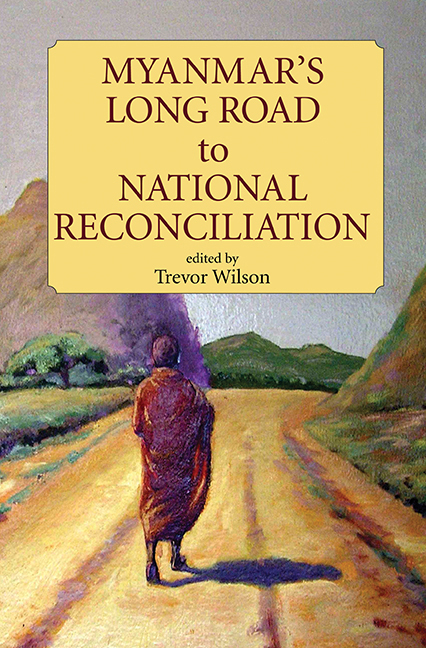Overview
Published online by Cambridge University Press: 21 October 2015
Summary
The 2004 Myanmar/Burma Update Conference, the sixth in a series, took place in the context of an overall political situation little changed from that of five years ago. The same military regime remains in control of the country, functioning in much the same repressive way as before, and there is still no clear prospect of substantial change or of the genuine political and economic reforms that would allow the people of Myanmar the hope of enjoying the prosperity and freedom being enjoyed by their neighbours in Southeast Asia. Yet the particular dynamics of Myanmar's political, social, and economic circumstances had gone through quite significant changes in the previous eighteen months, leaving the country facing more uncertainty than for many years.
October 2004 witnessed the most dramatic, and probably the most farreaching, changes in the leadership of the State Peace and Development Council (SPDC) since the forced retirement of General Saw Maung in 1992. All the more surprising because they were almost unforeseen, these changes ended the previous strong sense of collegiality and cohesion amongst the top SPDC leadership. There had long been speculation about differences among the top three leaders — the SPDC Chairman, Senior General Than Shwe; the Vice Chairman, Deputy Senior General Maung Aye; and the Prime Minister, General Khin Nyunt — but hitherto the leadership had clearly attached highest priority to regime stability and cohesion, and had handled occasional internal problems, such as accusations of corruption, with the minimum of outward fuss. In this instance, however, the top leaders went so far as to abolish one of the military institutions — Military Intelligence — that was critical to the regime's maintenance of tight controls over the country and its people, on the presumption that it was a tool of the fallen Prime Minister. They also instigated a wholesale purge of military intelligence officers and their close associates, on a scale unprecedented under the current government. Parallel with this, they initiated a wide-ranging Cabinet reshuffle in which a number of relatively inexperienced generals with no obvious qualifications for ministerial jobs replaced long-serving, experienced (and, in some cases, relatively capable) Ministers.
- Type
- Chapter
- Information
- Myanmar's Long Road to National Reconciliation , pp. xix - xxxivPublisher: ISEAS–Yusof Ishak InstitutePrint publication year: 2006

